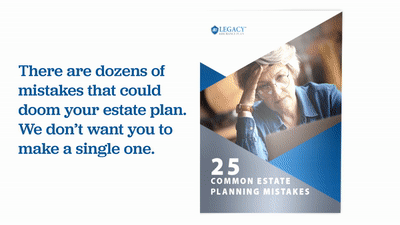Casey Kasem, the legendary American radio personality and voice actor, left a lasting impact on the entertainment industry. However, his legacy was overshadowed by a highly contentious dispute over his estate plan. Following his death in 2014, Kasem's family members found themselves embroiled in a bitter legal battle that revealed deep divisions and conflicting interests.
At the heart of the dispute was Kasem's estate plan, which became a subject of intense scrutiny. Allegations arose that Kasem's second wife, Jean Kasem, had exerted undue influence over him during his final years and caused emotional distress among his children who allege their access to him was restricted before his passing.
While Casey Kasem had established an advance health care directive in 2007, which designated his daughter Kerri Kasem as his health care agent, a legal dispute arose when Jean Kasem moved him from California to Washington without notifying his children. The situation highlights the need for explicit, clear and comprehensive health care directives, particularly when potential conflicts can arise among family members.
The case also involved questions about Kasem’s mental capacity and whether he had been coerced into making changes to his estate plan while suffering from dementia. These accusations fueled tensions between Jean and Casey's children from his first marriage and allegations that Casey suffered from neglect and abuse, contributing to his death.
The complexity of the situation further escalated when it came to light that Kasem’s advance directive for health care and living will may not have been adhered to during his terminal illness. This raised concerns about whether his treatment preferences were honored during his time in hospice care.
Ultimately, this dispute shed light on crucial aspects of estate planning, particularly regarding incapacity issues and potential conflicts within families. It highlighted the importance of having clear documentation outlining one's end-of-life wishes through a health care advance directive or living will to ensure that medical decisions align with personal values and desires.
The case also underscored the significance of carefully designating powers of attorney to avoid disputes over who has control over vital decisions concerning health care and financial matters. The bitter struggle surrounding Kasem's estate plan revealed deep-seated family disagreements as well as questions about mental capacity and undue influence.
Years after his death, the warring family members’ disputes over his estate were settled, and investigators found no evidence of criminal wrongdoing.
The case emphasized the critical need for comprehensive estate planning documentation – including advance directives – to ensure one's treatment preferences are honored during times of incapacity or terminal illness. Furthermore, it demonstrates how careful selection of power of attorney can help prevent conflicts among family members and ensure the smooth execution of an individual's end-of-life wishes.
What are the estate planning lessons regarding Casey Kasem?

Casey Kasem's estate planning journey offers valuable lessons to individuals navigating their own plans, and the importance of having a comprehensive and up-to-date estate plan cannot be emphasized enough.
Kasem's case also highlights the need for careful consideration of all assets, including intellectual property rights, as well as ensuring that appropriate beneficiaries are designated for each. Failure to address these details can lead to lengthy legal battles and unintended distributions of assets.
Another crucial lesson from Kasem's case is the significance of planning for incapacity. As Kasem battled dementia in his final years, disputes arose over his health care decisions and management of his affairs.
This emphasizes the importance of establishing powers of attorney for both financial matters and health care decisions while one still possesses the legal capacity to do so. Designating trusted individuals who understand your wishes and can act in your best interests helps prevent conflicts during times of incapacity.
Furthermore, Kasem's situation highlights the potential dangers of undue influence when it comes to end-of-life treatment preferences. That’s why it’s essential to establish clear directives regarding medical interventions and end-of-life care through an advance directive or living will. Clearly articulating one's desires, such as preferences for hospice care or life-sustaining treatments, allows loved ones and medical professionals to carry out those wishes without room for interpretation or dispute. Casey Kasem's estate planning quagmire presents several crucial lessons that everyone should consider when crafting their own plans.
An ideal comprehensive estate plan accounts for all assets and beneficiaries, plans for potential incapacity by designating powers of attorney and ensures clear directives on end-of-life treatment preferences through advance directives or living wills. By taking these steps proactively, individuals can lessen the chance of family conflicts arising during challenging times while safeguarding their legacy and ensuring their wishes are honored.
Why is it important to have a clear advance directive and living will?
Why is it important to have a clear advance directive for health care and living will? The importance of having a clear advance directive for health care and a well-defined living will cannot be overstated.
As we navigate the complexities of life, it is crucial to consider our end-of-life treatment preferences and make them known to ensure our wishes are respected. This becomes particularly crucial in situations where individuals may face incapacity due to illness or age-related conditions such as dementia.
One significant reason for having an advance directive is to maintain control over our medical decisions when we might lack the capacity to make them ourselves. By clearly outlining our treatment preferences and end-of-life wishes, we can alleviate potential family conflicts that may arise over differing opinions regarding medical intervention.
An advance directive provides guidance for health care providers and loved ones in making critical decisions during challenging times, reducing uncertainty and stress. Moreover, an advance directive serves as a protective measure against undue influence or manipulation that could potentially arise during times of vulnerability.
By designating a trusted individual as your power of attorney for health care, you can ensure that your wishes are upheld even if you are unable to communicate them yourself. This not only safeguards your autonomy but also helps prevent disputes among family members who might have differing views on your care.
Additionally, an advance directive can contribute significantly to the quality of your end-of-life experience by allowing you to express your desires concerning hospice care or other specific treatments you may prefer. It empowers you to create a roadmap for how you want your final days to be managed, ensuring that they align with your values and beliefs.
How can you avoid disputes over a power of attorney?

Disputes over who is named a loved one's power of attorney can be emotionally and legally complex. It is crucial to take proactive steps to avoid such conflicts and ensure that the right person is appointed. One essential measure is to clearly communicate your wishes and intentions regarding your power of attorney designation in your estate planning documents, such as a durable power of attorney.
In order to prevent disputes, it is essential to choose a trustworthy and reliable individual as your power of attorney. Consider someone who understands your values, respects your treatment preferences and has demonstrated sound judgment in their decision-making abilities. Discussing this choice with your family can help create transparency and avoid any surprises or misunderstandings down the line.
Additionally, it is advisable to name alternative agents in case the primary person you choose declines or becomes unable to fulfill their duties. This ensures that there will always be someone available who can step into the role without causing a disruption or adding stress during an already challenging time.
By designating alternate agents, you are proactively addressing potential issues and minimizing the chance of disputes arising over who should assume power of attorney responsibilities. Open communication among family members also plays a fundamental role in preventing disputes over power of attorney designations.
Having honest conversations about end-of-life wishes, treatment preferences and long-term care plans can help foster understanding and unity within the family unit. When everyone is aware of each other's desires and has clarity about decision-making roles, it significantly reduces the chances of disagreements arising later on.
Conclusion
The case of Casey Kasem's estate plan serves as a stark reminder of the importance of thorough and thoughtful estate planning. The dispute that arose over his assets and end-of-life treatment preferences highlights the need for clear communication and documentation to avoid future conflicts among family members. This case emphasizes the significance of having a comprehensive advance directive and living will in place, especially when dealing with complex family dynamics.
One key lesson we can learn from Casey Kasem's situation is the necessity of designating a reliable power of attorney who will act in accordance with our wishes, even in the face of potential family disagreements. By carefully selecting someone who understands our values and priorities, we can decrease the likelihood of disputes arising regarding medical decisions or financial matters during times of incapacity.
Furthermore, taking proactive steps to decrease the chance of family conflicts over end-of-life treatment is crucial. Engaging in open conversations about one's treatment preferences with loved ones can help foster understanding and ensure that everyone is on the same page when difficult decisions need to be made.
Additionally, seeking professional advice from an experienced estate planner can offer guidance on navigating complex legal matters surrounding incapacity, inheritance, and health care choices. In this difficult but enlightening case study, we are reminded that estate planning goes beyond mere distribution of assets; it involves leaving a lasting legacy that reflects our values and protects our loved ones.
By confronting these important decisions head-on, we can ensure peace of mind for ourselves and minimize potential strife among our nearest and dearest as they navigate our end-of-life journey. This serves as a powerful reminder that no matter how daunting or uncomfortable it may seem at first glance, taking charge of one's estate plan ultimately empowers us to create a more harmonious future for ourselves and those we hold dear.



